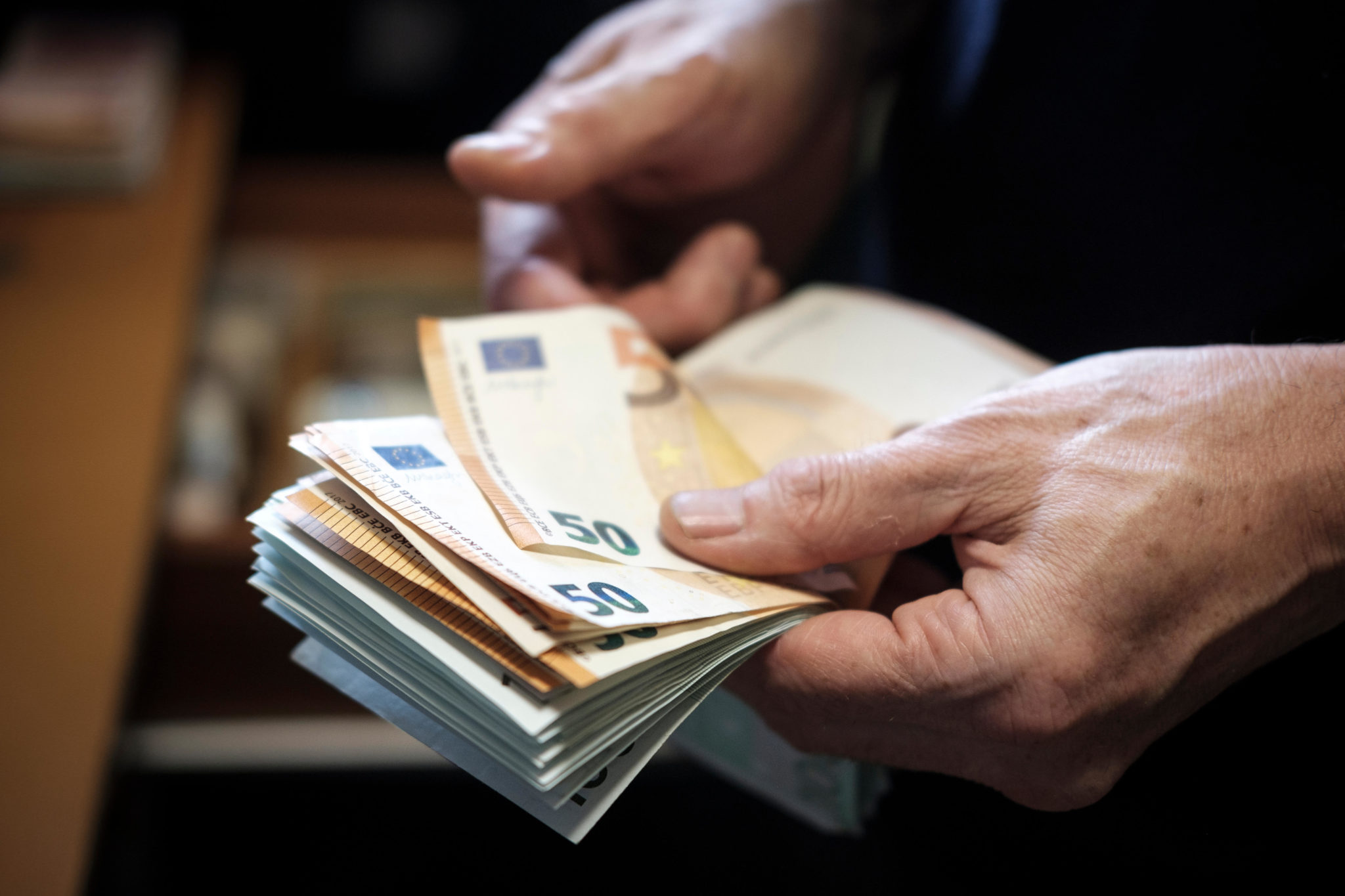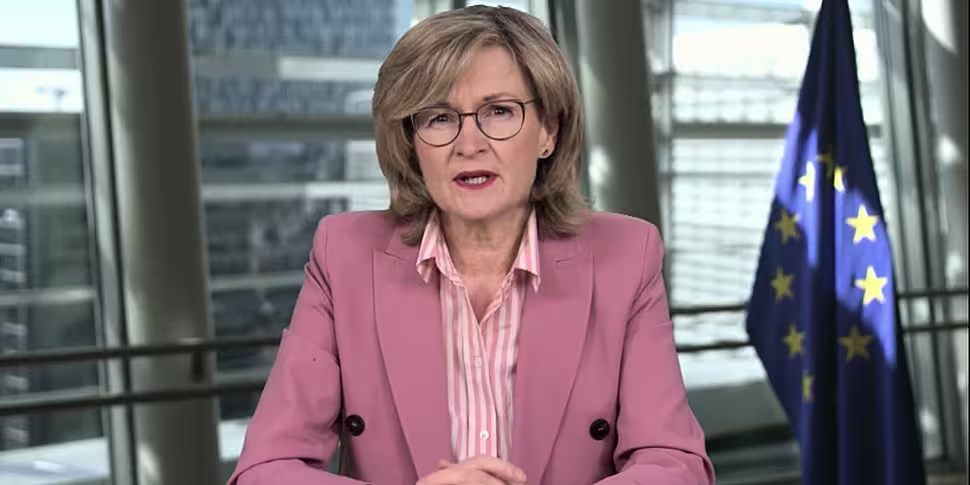The EU is working to ensure that people can access the euro, either through cash or via a new digital currency.
Ireland's EU Commissioner Mairead McGuinness was speaking as use of cash has dropped significantly since the pandemic.
The Central Bank has said €20 billion was withdrawn from Irish ATMs in 2019 before the COVID-19 pandemic.
That has now fallen to some €13 billion.
 Counting euro banknotes on 17-07-18. Image: Ianni Dimitrov Pictures/Alamy
Counting euro banknotes on 17-07-18. Image: Ianni Dimitrov Pictures/AlamyCommissioner McGuinness told Newstalk Business Editor Joe Lynam cash should always be available.
"We believe cash is and should always be available," she said.
"In a time when people are using less of cash - if you look at the figures, cash use has declined from over 70% to 59% in terms of what we're doing in practice - but we want to protect the right to use cash.
"We're trying to future-proof the euro, so that should cash continue to decline in use, we want you and I to be able to access a Central Bank currency - the euro - digitally.
"It is different than private solutions, if you like, because this is Central Bank money.
"We are in a way complementing; so we're saying that we want cash, but we want the option for people to use the euro in digital format".
Cost of handling cash
Joe told The Pat Kenny Show the cost of handling cash is actually rising.
"It is an expensive business because cash is highly portable and has a tendency to disappear suddenly," he said.
"The design and manufacture of cash has become a very expensive process.
"It involves all sorts of laser imagery, watermarks, protective silver strips as well as imagery that can only be seen in a certain light.
"All the serial numbers have to be registered and then they get transferred to the Central Bank via very expensive security... often they get Garda or Army protection.
"The commercial banks then have to remove the older or damaged or destroyed notes from circulation.
"It's not quite a case of one in, one out because more and more cash is added as the economy and population grows.
"Simply handling cash requires a huge amount of manpower."
Joe said there are other risks involved.
"Even when you withdraw cash from your bank, and get some cash back at your supermarket, there's also the personal risk," he said.
"You could be mugged, you could be attacked; that comes with added insurance costs and personal liability for companies."
'Significant cost for small businesses'
ISME CEO Neil McDonnell said businesses are paying the cost whatever form of payment they're using.
"Bank charges are a really significant cost for small businesses in particular," he said.
"Typically the smallest of businesses, with one to nine people, are looking at €3,000 to €5,000 per year in bank charges.
"Small business - between 10 and 50 people - are typically paying over €10,000 per annum and then significantly more for medium businesses.
"Individual charges range from 10c to 20c for electronic charges, each and every one, but with charges for coin ranging from 2% to 3% which is very significant in the hospitality and fast-food sector.
"The cost of handling notes typically ranging between 0.6% and 2.4%.
"It's a very large amount of money businesses are paying, whether they're using cash or whether they're trading exclusively electronically," he added.









